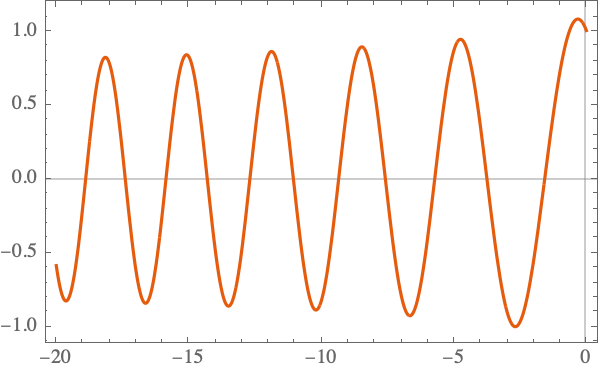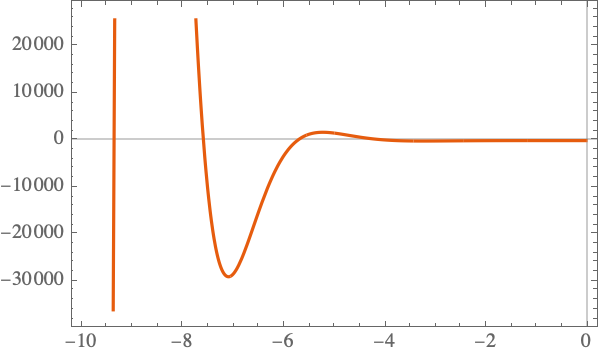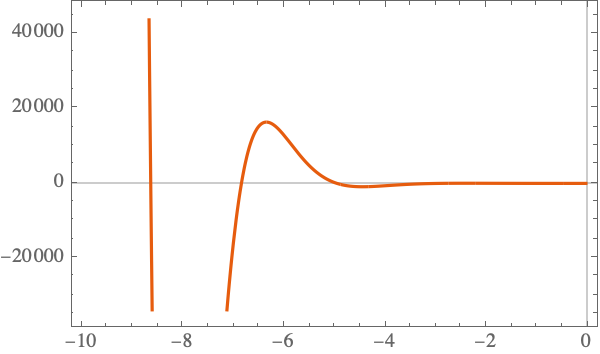Numerical Stability & Automatic Solving
The function $f(t)$ oscillates with exponentially increasing amplitude. To regularize the problem, we can introduce the function
$$ g(t) = e^{\frac32t}f(t) $$
which satisfies
$$ [E(t)-1/4] g(t) + g''(t)= 0\\ g(0) + 2g'(0) = 0\\ g(t_{\text{min}}) - 2g'(t_{\text{min}}) = 0 $$
Solving for $g(t)$ gives a regularly oscillating function:
sol = NDSolve[{(EllipticE[t] - 1/4) g[t] + g''[t] == 0,
g[0] + 2 g'[0] == 0, g[0] == 1}, g, {t, -20, 0}];
G = g /. First[sol];
Plot[G[t], {t, -20, 0}]
As @J.M. points out, WhenEvent can be used to extract the allowed values for $t_{\text{min}}$ directly,
sol = NDSolve[{(EllipticE[t] - 1/4) g[t] + g''[t] == 0,
g[0] + 2 g'[0] == 0, g[0] == 1,
WhenEvent[g[t] - 2 g'[t] == 0, Print[t]]},
g, {t, -20, 0}];
(* -0.657447
-2.92468
-4.95128
-6.83972
-8.63254
-10.353
-12.0157
-13.6306
-15.2049
-16.744
-18.2522
-19.7327 *)
Use a Sow/Reap combination instead of Print in order to use these values later in a calculation.



